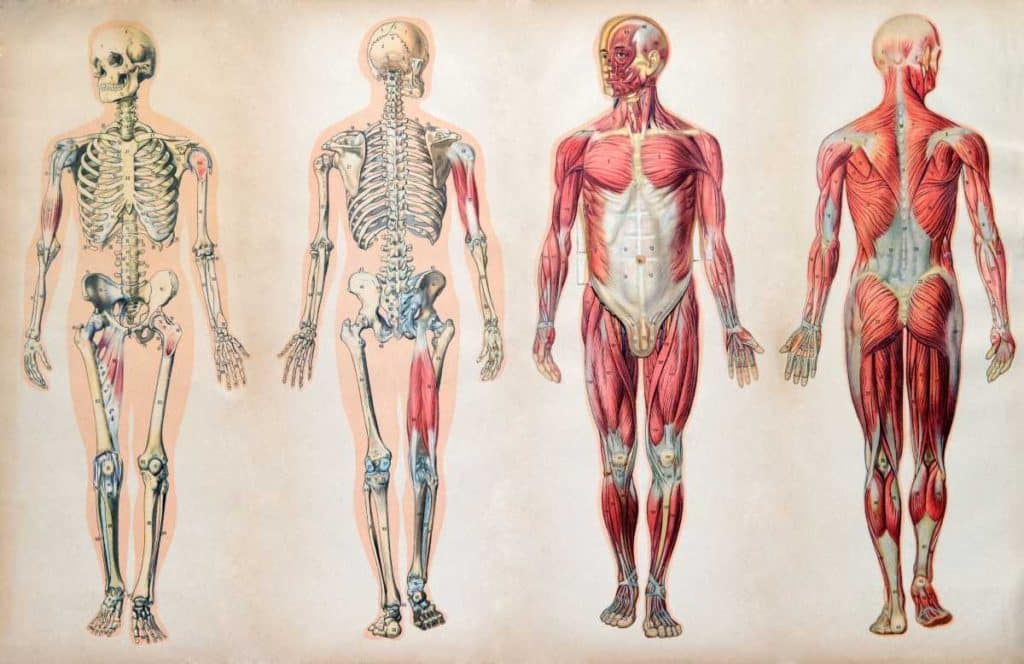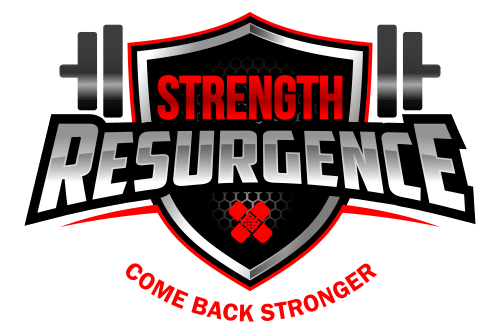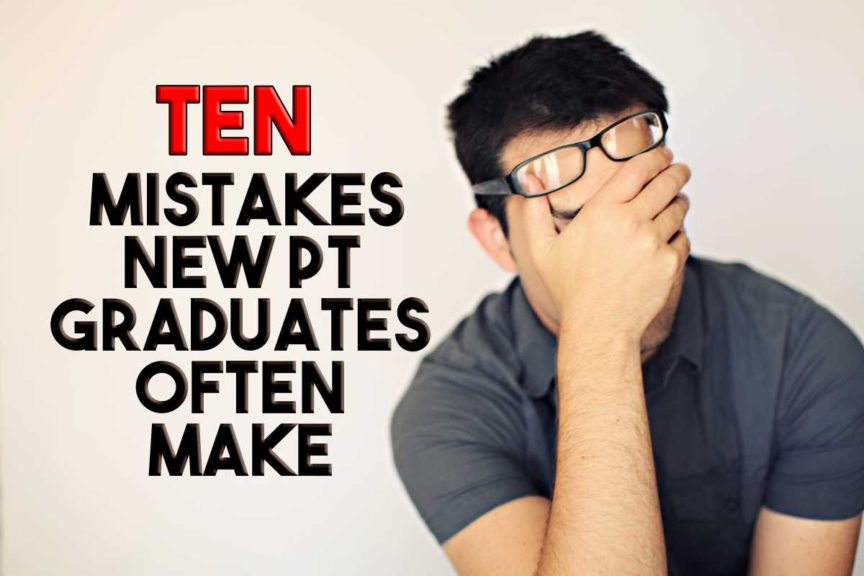We all make mistakes, and I am certainly no exception to this. While I’ve learned so much over the years in regards to everything that pertains to my physical therapy pursuits, one of the biggest things I’ve learned is this: The more we love something and the greater our passion towards it, the greater our desire becomes to help others avoid costly mistakes associated with it.
For new PT graduates who are hoping to get their careers off to a smooth start while simultaneously becoming the best practitioners that they can become, avoiding the ten commonly made mistakes within this article is critical. These mistakes can hold new grads back and diminish their overall potential as they enter the world of professional practice.
It’s important for you, the reader to know that I hold myself to high standards when it comes to becoming the exemplary practitioner I hope to one day become. I feel I have made nearly all of these mistakes to one extent or another while seeing plenty of other new grads make these same exact mistakes as well. I believe that doing so has held me and other fellow new graduates back in some capacity and so as a result I wish to share them within this article.
I simply want to point them out so that you can avoid some potentially nasty pitfalls including professional mediocrity, stagnation of knowledge and abilities, as well as false perceptions that can rob you of joy and peace of mind. If we want to be the exemplary practitioners that we wish to become, we need to recognize our mistakes, take ownership of them and strive to become a little bit better each and every day.
The quick overview of the ten mistakes new PT graduates often make
- You’re not continually reviewing and enhancing your anatomy knowledge
- Your student loan debt is just something you’re going to have to live with for the next decade or so.
- The hard part (school) is now over – you can now take your foot off the pedal
- You believe you now need to collect all sorts of certifications before you can be taken seriously by others
- You don’t live out and exemplify your belief towards the importance of staying active and making healthy choices
- You don’t have (or are not actively pursuing) establishing a network of mentors to continually learn from
- You’re not actively involved with your local community in some way, shape or form
- You don’t have a list of books, journal articles or other material that you’re routinely reading through
- You aren’t exploring ways to continually enhance your communication skills
- You bash other professions outright simply because they don’t align with the PT model you’re familiar with
1. You’re not continually reviewing and enhancing your anatomy knowledge

Name one way in which knowing more anatomy and improving your anatomical understanding of the body will hurt you as a practitioner. I’ll wait.
I don’t know who you are, but I’d be willing to bet that continually enhancing your anatomy proficiency will carry absolutely zero negative consequences to you as a practitioner.
Yes we all took gross anatomy in school and learned literally a thousand or two anatomical features when we did. But if you had to take it again right now, how do you think you’d perform? I certainly wouldn’t do as good as I’d like to. In PT school, you take gross anatomy at the start of your program, cram it in your head and then let a ton of it leak out as you move on to your other courses. Obviously you don’t forget everything, but there’s plenty that you do.
It’s analogous to doing an intense, semester-long boot camp – sure, you’ll get into great shape and make some great improvements to your health, but if you stop all together, you’ll regress in your abilities rather quickly. Doing enough to maintain your current abilities, if nothing else, is easily doable with a bit of review each week.
I harp on this all the time because anatomical knowledge is absolutely everything when it comes to the foundation of becoming an exemplary practitioner. Regardless of the specialty of physical therapy you hope to pursue and one day practice, your ability to effectively evaluate and treat patients is largely rooted in your knowledge and understanding of anatomy. Simple as that.
Now, let’s be clear: I’m not making any sort of claim that I have superior anatomical knowledge. Yours might even be better than mine right now for all I know. And while I hold myself to incredibly high standards in these areas, I’m not any sort of master of anatomy. I consider my knowledge to be somewhere around decent, but by no means exceptional. I’m a work in progress, and always will be. How about yourself?
The bottom line: There are zero consequences that can come from you being as knowledgeable as possible when it comes to anatomy of the human body. It’s the first way you begin to separate yourself from the average physical therapist. It instills greater confidence not just in yourself, but in your patients and co-workers as well. It leads to more effective assessments, treatments and outcomes. Keep reviewing and mastering your anatomy because there’s always more to learn.
2. Your student loan debt is just something you’re going to have to live with for the next decade or so.

I don’t like to be casual about anything pertaining to my pursuits in physical therapy. Paying back my student loans from PT school is therefore something I refuse to be casual about as well. I’m not saying that you need to have the same mindset as I do. It’s totally fine if you don’t. What I am saying though is that if you don’t want to feel helpless with your financial student loan debt, you can choose to adopt this same intensity-driven mindset.
If you’re like me and are waging war against your student loans, keep this quote by Dave Ramsey in mind: “The level of intensity dictates the level of sacrifice.”
Yes, we overpaid for our tuition. I currently have a mountain of PT student loan debt that is crippling my life and forcing me to put all aspects of my life’s pursuits on hold until I can pay more of it off (and it’s not nearly as bad as the debt of many others). I am incredibly upset and bitter at how much I had to pay for PT school and the disproportionate education and training I got from it. When I become supreme overlord of the world, it will be one of the first things I change.
The first step to take: Take ownership to take control
In the meantime, the first step to take with our loans and debt is to take complete ownership for all of it. No one forced us to sign our loans, and taking ownership of the situation reminds us that we have a high amount of control and say in how we approach paying all of it back. I have no issues if you want to be casual in paying them back, I just don’t want you to feel like you’re helpless in attacking them as aggressively as you can if you indeed want to eliminate them as quickly as possible.
The second step to take: Continuing on with discipline
The second step to take is acknowledging that it won’t be a fun process and that it’s one that will be filled with plenty of sacrifices. You can’t afford (figuratively and literally) to develop “new grad syndrome” where you go out and buy everything you want just because you’ve “earned it” due to graduating. If you can develop the discipline to keep living on a student budget for your first few years of working while paying as much as you can, your loans will be a thing of the past in no time at all.
Of course, I understand that we all have different life situations and circumstances, so how this all unfolds for each and every one of us will look different. But I believe that if you really want to find a way to make it work, you’ll be able to.
If you want more insight as to paying off your student loan debt quicker, you can check out my blog post: How Physical Therapists Can Pay Off Student Loan Debt Quicker.
Also, for more great financial insight and tips, head on over to Dave Ramey’s website, where you can get some great information and free resources to help take control of your financial situation.
The bottom line: No one is stopping us from paying our student loans off as quickly as we can. It may not be pleasant to do so, and will take a ton of discipline under even the best of circumstances, but I would argue that being a slave to debt and paying tons of extra money in interest is even more unpleasant.
3. The hard part (school) is now over – you can now take your foot off the pedal

“Formal education will make you a living. Self education will make you a millionaire.” – Jim Rohn
PT school can feel like an exhausting marathon, so when you cross that finish line, you have indeed earned a well-deserved break. After sports teams win the championship game, they take some time off to celebrate and recover. It’s healthy and the right thing to do.
But too many graduates make the mistake of thinking that a new season isn’t on the way. Assuming that you want to carve out a solid reputation for yourself and have a successful career as a physical therapist within your chosen field of practice, you need to realize that the hard work is now just beginning. Hope that doesn’t burst your bubble.
Again, I’m typing this from a mindset of wanting to be a therapist who sets up a practice and career on their own terms. There’s nothing wrong with not having this desire, but it’s simply one I can’t relate to.
I’ve never expected to immediately have everything fall into place for me regarding my dream physical therapy career simply because I graduated from my PT program and obtained a license. My hope is that you wouldn’t, either. Graduating PT school means you’re not at the starting line, not that you’ve crossed the finish line.
So, if you’re anything like me and want to be a therapist who is a cut above the rest; a therapist who has a CLEAR vision of how you want to develop your practice and ultimately your career, then know that it will likely take a gut-wrenching level of continual, sustained hard work on all sorts of fronts. You’ll need to continually further develop and refine all of your PT-related skills while also focusing on other fronts such as how to build your caseload for your targeted demographic, how you can become recognized throughout your community/local area, and much more.
If you just want to settle into a traditional 9-5 role, then there’s nothing wrong with that. But for me (and many others), we strive to set things up a bit more on our own terms and pursue practice more on our own terms. And if you happen to fall into this latter category, just know that once you graduate, the real work is now beginning.
But that real work will take you to wonderful places. It will take you to places where you don’t feel trapped; places where you won’t feel underpaid; places where you won’t feel unappreciated in a work environment you can’t tolerate; places where you feel you have freedom in how you pursue your practice. And if that’s a situation you want to build for yourself, know that it takes a ton of hard work – work that makes PT school look like a simple warm up.
The bottom line: Hard work works. If you’re after a PT legacy that involves you setting up a career on your own terms and becoming a leader within your field, then know that the hard work is only just beginning once you graduate.
4. You believe you now need to collect all sorts of certifications before you can be taken seriously by others

Hear me out on this one. Advanced certifications and further post-graduate training is incredibly important. Yes, you should have an insatiable hunger to pursue them. But when first starting out within your career as a physical therapist, the knowledge you continue to collect through your own self-directed learning will be worth its weight in gold when it comes to making others realize that you’re the real deal.
While I am currently pursuing all sorts of advanced/post-graduate training, I am incredibly guilty of adopting the mindset that patients and fellow therapists couldn’t take me (i.e. my knowledge, professionalism, etc.) seriously without them. Thankfully, I now know better.
If you want to be taken seriously, it all begins with self-directed learning. Being able to clinically reason your way through differential diagnoses, having an in-depth understanding of pathoanatomics, what the latest research is finding, and so much more is ALL freely accessible to you. Take what you learn from this freely available information and apply it to conversations you have with co-works and patients when needed and they will all begin to understand that you’re the real deal.
Having paid an arm and a leg for my DPT education, I am very limited as to how many post-graduate courses I can take within a year, as these courses themselves can cost considerable amounts of further money to be spent. Thankfully, I’ve realized that self-directed learning carries more value than I once believed, and I can do plenty of it until I can afford to take more courses.
Please don’t make the mistake that I have done of thinking that you can’t be an exemplary new graduate until you rack up more certifications and credentials.
The bottom line: I want you to have the hunger to pursue post-graduate credentials and certifications, but keep in mind that you can stand out as a new graduate through self-directed learning and focused efforts on learning premises and principles of advanced concepts. The formal training on these advanced concepts can come later, when the money becomes available. In the meantime, you’re plenty capable of learning all sorts of valuable information and knowledge through self-directed learning.
5. You don’t live out and exemplify your belief towards the importance of staying active and making healthy choices

In other words, you’re being a hypocrite. One of our primary jobs as physical therapists is to educate others on (as well as promote) healthy lifestyles that incorporate physical activities and practices that we enjoy. We as physical therapists believe that prevention is better than any cure and that prevention of physical disease, pain and dysfunction is largely predicated on a lifestyle that reduces said diseases and co-morbidities through physical activity.
You are well aware that exercise is medicine. You need to give yourself appropriate and regular doses, not just tell others to do the same.
I’m not saying we all need to be hitting the gym five days a week, sport highly athletic bodies or even be pain-free ourselves, but we had all better be partaking in regular physical activities that we enjoy.
Whether it’s formal physical training or just going on regular, casual walks through a park by yourself or with companions, you need to be doing something. Yoga, golfing, bike riding, jogging, hiking, canoeing, it had better be something that keeps you active and that you enjoy.
If you can lead by example when it comes to promoting a physically active lifestyle, your patients can not only have greater buy-in to your treatment expertise, but you can even inspire them! And then of course, there’s the whole “you’ll feel better, be healthier and in less pain” thing as well.
As a healthcare practitioner, you had better at least act like you care about your own health.
I understand that we all get extremely busy and that there will inevitably be seasons throughout our lives where our physical activities and pursuits may need to take a temporary move to the back-burner. I fully get that. But if the months are ticking on and on without you partaking in any sort of regular, physically active pursuits, you really need to get make a change.
If you don’t enjoy physical activity or don’t have any physical activities that you enjoy, then I’m hoping you can find something. While I would find it odd that you wanted to become a physical therapist yet didn’t enjoy physical activity, I promise I’m not judging you. But with that being said, I do want you to remember that you’re a representative and ambassador to promoting physical health and wellness.
The bottom line: Practice what you preach. Nobody likes a hypocrite. It doesn’t have to be anything crazy in terms of intensity or regimentation, but it needs to be something that keeps you moving and healthy. Your body will thank you and your patients will take you more seriously, whether they admit it or not.
6. You don’t have (or are not actively pursuing) establishing a network of mentors to continually learn from

When it comes to my professional connections and network, I try to abide by the old saying “If you’re the smartest one in your group, then you need to find a new group.”
Not enough new grads capitalize on finding professionals they can continue to learn from. And you should always strive to have other individuals in your life and professional realm whom you can continually learn from, regardless of how long ago you graduated from PT school.
The benefits of establishing new connections, having mentors and continually working on networking with other established professionals are simply too numerous to list. I would encourage you to develop in-person mentors as well as those whom you can learn from and stay in touch with online. When it comes to the online approach, one of the best ways to do so is through LinkedIn, so set up a profile and connect with some of your professors, former CI’s, etc. if you haven’t already done so.
When it comes to improving all realms of your professional abilities, the amount of time you can save by being mentored by others is invaluable. Being challenged by others who have superior experience, skills and a similar mindset will absolutely slingshot you forward by leaps and bounds over those who try to figure everything out by doing everything on their own.
Never forget that if you’re the most inexperienced and overall weakest professional within a group of other professionals that you will be the one who grows the quickest as you begin to be brought up to their levels. It may not be a pleasant experience to be continually challenged on multiple professional levels while being put through the fire, so to speak, but the rewards are absolutely worth it.
Mentors have made all the difference in my personal and professional life. And when it comes to my physical therapy mentors, they have already brought me to new levels that would have otherwise taken me years and years to attain on my own.
It’s also worth pointing out that having mentors in other realms of your life is also a wise idea. But for the sake of this article, I’ve specifically referred to mentors within our chosen profession of physical therapy.
The bottom line: Being actively involved with and learning from one or more professionals that you look up to will accelerate your career through a multitude of facets. You won’t learn as many things the hard way, you’ll save valuable time and effort in enhancing and refining your skills and will have a network of others to reach out to for any of your professional needs. You’re never too smart or experienced to not have a mentor.
7. You’re not actively involved with your local community in some way, shape or form

Another mistake that I am entirely guilty of making. There are numerous reasons and benefits as to why you should be plugged into some sort of community, with said benefits helping both yourself as well as those you spend time with.
Physical therapists are advocates for the well-being of others along with being ambassadors to the wonderful things that our profession can offer to them. Our duty to help others and promote our profession is not confined to within clinic walls.
If you truly want to impact others and spread our message, I would argue that it’s best done through genuine and personal interactions. Cookie-cutter, blanket messages and posts on social media don’t carry much weight, but taking the time to become part of a community, getting to know individuals on personal levels and letting them SEE just what your knowledge and expertise can offer them will make an impact on them.
Join a book club, an outdoor hiking group, a bird-watching community – ANYTHING that you truly are interested in and enjoy doing. If it’s something you enjoy doing, you’ll be involved with it long enough to have others get to know you, what it is that you do professionally and just how much it can enrich their lives or the lives of their loved ones.
If you are someone who is responsible for generating your own caseload within the clinic, this will also serve to not only create referral sources, but will also help the individuals within your community already have a sense of trust in you should they need to personally seek your help or send a loved one your way.
And of course, the added benefits for you being involved with a community are that you have greater social health within your own life. You’ll have a strong sense of belonging and can maintain healthy balances by taking time to pursue activities and hobbies that you enjoy partaking in.
Again, the community or communities that you belong to do not have to be related to physical activities or anything of the sort. It’s great to belong to a bike riding community or volleyball club, but belonging to a chess club or gardening community is just as great.
How to find and become part of good, local communities
If you’re living in a new area and don’t know how to find good communities that you’re interested in, or you just don’t know how to go about finding a good community in general, you can check out a great website called meetup.com, where you can explore, find and get plugged into local communities within your area!
If you’re extremely busy, try just getting involved on a semi-regular basis. Something is better than nothing!
The bottom line: Getting involved with a community will benefit you through both personal and professional means. It will also benefit those within the community that you become part of. Win-win.
8. You don’t have a list of books, journal articles or other material that you’re routinely reading through

Me being the human body geek that I am, I am not overly guilty of making this mistake, but have certainly gone through seasons where I’ve slacked off a bit more than justified. Unfortunately, this is one of the most common mistakes I feel new graduates are often making.
As always, hear me out here. I know that life keeps us all busy, that we can become mentally exhausted and need time to break away from our professional pursuits. I absolutely get that. I’ve been there before.
But there’s immense freedom that comes from graduating PT school and now having the freedom to really choose what it is that we’d like to learn more of or begin focusing our learning efforts towards. Therefore, reading journal articles, textbooks and other material that you’re genuinely interested in within your specific realm of practice should be a bit more enjoyable and easy to manage.
I’m not saying you need to devour everything you can get your hands on as quickly as possible (this is why a list is created). But certainly you have the time to read one new study per week, or one chapter out of a textbook per week. Just constantly be chipping away at an article, at a book or anything else of the sort. A little bit here. A little bit there. It all adds up and it will only serve to make you a more up-to-date and well informed practitioner.
Yes, it’s good to go through seasons where we deliberately pull back from these reading pursuits a bit in order to just mentally recharge, focus on other aspects of personal or professional pursuits. But if the months are ticking on and on without even a few chapters or academic articles being read, then my belief is that you are missing out on the continued knowledge and information that you need in order to become the exemplary practitioner I am hoping for you to become.
The bottom line: It’s not about reading dozens of books and articles as fast as you can and then doing it all over again with new material. It’s about having a steady stream of material always ready to chip away at. One chapter or paper here, another chapter or paper there. Make the time to always be reading something here and there and you’ll become a better, more informed practitioner for it.
9. You aren’t exploring ways to continually enhance your communication skills

Me: Guilty as charged.
I have no doubt made the mistake of thinking that I didn’t need to enhance my communication skills with others. I’ve also made the mistake of even being completely oblivious to the fact that the more effective I can be towards all aspects of communicating with others, the more effective therapist I can be when working with co-workers as well as my patients.
Communication is everything when it comes to what we as PT’s do within our profession. And like anything else, it is a skill that we need to continually work on, further develop and refine.
Thankfully, there’s all sorts of great tools and systems out there that can really help out with this. Of course, I am no expert when it comes to any of this, but one of the most powerful tools I’ve been introduced to has been through the communication training that my current clinic is putting me through.
I’m currently being trained up on understanding and recognizing different communication styles through the DiSC model and it has been a complete eye-opener to me. Check out this link to be taken to their website where you can learn all about the model itself.
While it’s a formal system that my current clinic is putting me through, other communication systems I’ve found to be very beneficial on reading up on have been Motivational Interviewing (MI) (link takes you to a Wikipedia page explaing it) and negotiation strategies by Chris Voss (really opens your eyes towards understanding effective communication).
There’s obviously another hundred or so great communication training systems one can learn from. I am still very new to this world and likely haven’t even yet scratched the surface. But thankfully I’ve got my feet wet with it, and can only imagine what I have yet to learn.
So, however much you choose to improve your professional abilities, make sure you’re leaving study time for enhancing your communication skills. They’re just as important as your hands-on skills and clinical reasoning skills.
The bottom line: There are plenty of ways to practice improving your communication skills. However you choose to do so, remember that the more you know about the world of communication, and the better your communication skills become, the more effective you’ll be when it comes to working with your patients and fellow co-workers in the clinic.
10. You bash other professions outright simply because they don’t align with the PT model you’re familiar with

I understand that we as PT’s have a bias towards how we choose to view and implement physical healing. I myself have a ton of biases, and I would expect anyone in any profession (healthcare-related or other) to have their own professional biases as well. Having biases is natural, but it’s important to acknowledge them, if nothing else. It’s also important to know what you believe in while still being curious and willing to mentally explore other models. Exploring other models doesn’t mean you must accept them, it just means that you have an open mind. Curious, open minds are often the most intelligent ones.
So, to be clear, I’m not telling anyone to get rid of their biases, rather I’m imploring them to realize that none of us know everything, and the smartest individuals are the ones who are in fact the quickest to admit it.
The problem I’ve seen within myself and so many other new graduates is that we are often taught to fully dismiss another profession’s model in its entirety, as if there’s no room for exploring more of that model in the slightest and that we must therefore either accept it or reject it in full. No room for anything else in between.
Maybe we heard a belief or approach used by another healthcare practitioner that sounds absurd (and very likely could be, or at least seems to be), and so we instantly remind ourselves that because of this one particular individual’s belief that everyone within their profession also believes the same things, uses the same approaches, etc. How quick we are to forget that every profession houses amazing, not so amazing and even downright bizarre practitioners. There’s amazing PT’s, amazing chiro’s, osteopaths, and so on within each profession. There’s also the not so amazing and everything else in between.
And to make it even more dynamic, practitioners within one specific field of rehab don’t all subscribe to the same model or share the same beliefs with one another. Therefore, it’s not worth basing our view of another profession off our knowledge or experience of a few of their practitioners.
Believe me, there are PT’s out there who I don’t align my beliefs with at all. And the thought of other professions outright rejecting every PT simply because their perceptions of what all PT’s do or believe comes solely from those sub-par, bizarre or even incompetent PT’s makes me want to scream “Not all of us PT’s are like that!!!”
The key with all of this is to check your ego, even if the other individual doesn’t check theirs. I’ve learned amazing things from my friends over the years who are in different healthcare professions and thus use or subscribe to a different model of healing than I do. We may not see eye to eye on exactly everything, but I assure you they know (and have taught me) some stuff that I would have LOVED to learn more about in school and incorporate more into my practice.
It’s possible to not see eye to eye with other models and systems and yet still find 10% of truth or benefit within it. Keep your biases, but you’d be surprised at the little ways you can learn amazing things from other providers within different professions. Don’t be closed-off in entirety. Keep the biases but keep exploring and being curious as well.
The bottom line: There are different models and beliefs that exist when it comes to helping others with their physical rehabilitation and pain reduction. There are also different models followed within a single profession and those models can change, fall out of style or be improved upon as time continually goes on and on. Lumping an entire profession or multiple professions into a pre-conceived box doesn’t do anyone any good at all. Keep your biases, but also remember that you’d be surprised what you can learn if you leave your ego at the door.
Concluding remarks
I hope that as a new PT graduate you have the passion and hunger within you to become an exemplary practitioner. I also hope that you are able to continually evaluate your professional mindset and abilities while asking yourself where you might be making any potential mistakes that could hold you back from the success that you’re after.
There are of course an infinite number of mistakes that can be made in addition to the ten that I’ve covered within this article. My hope would be that you can reflect on these particular ones, ensure that you avoid them altogether or rectify any that you may currently be making.
Above all else, remember that mistakes are indeed a part of life and the worst mistake that one can make is to simply not learn anything from the initial mistake that they’ve made.

Hi! I’m Jim Wittstrom, PT, DPT, CSCS, Pn1.
I am a physical therapist who is passionate about all things pertaining to strength & conditioning, human movement, injury prevention and rehabilitation. I created StrengthResurgence.com in order to help others become stronger and healthier. I also love helping aspiring students and therapists fulfill their dreams of becoming successful in school and within their clinical PT practice. Thanks for checking out my site!

